A dental technician plays a crucial role in supporting dentists and dental clinics by fabricating and creating various types of dental prosthetics, orthodontic devices, and other supportive treatment tools. These can include items such as anti-snoring devices, whitening trays, and bite splints. This profession is highly technical and requires precision, as the technician must demonstrate skillfulness and meticulous attention to detail in every aspect of their work. Additionally, they must possess a strong foundation in dental restoration knowledge.
In addition to having a solid understanding of technology and aesthetics, it is essential for dental technicians to have well-established professional skills. They are responsible for managing the specialized equipment within a dental laboratory, which may involve working collaboratively with a team or independently. Furthermore, they should also be capable of participating in training programs to enhance their expertise.
The job prospects for dental technicians are quite promising, largely due to the increasing emphasis on beauty and health care among individuals. As more people prioritize their appearance and oral health, the demand for skilled professionals in this field continues to rise.
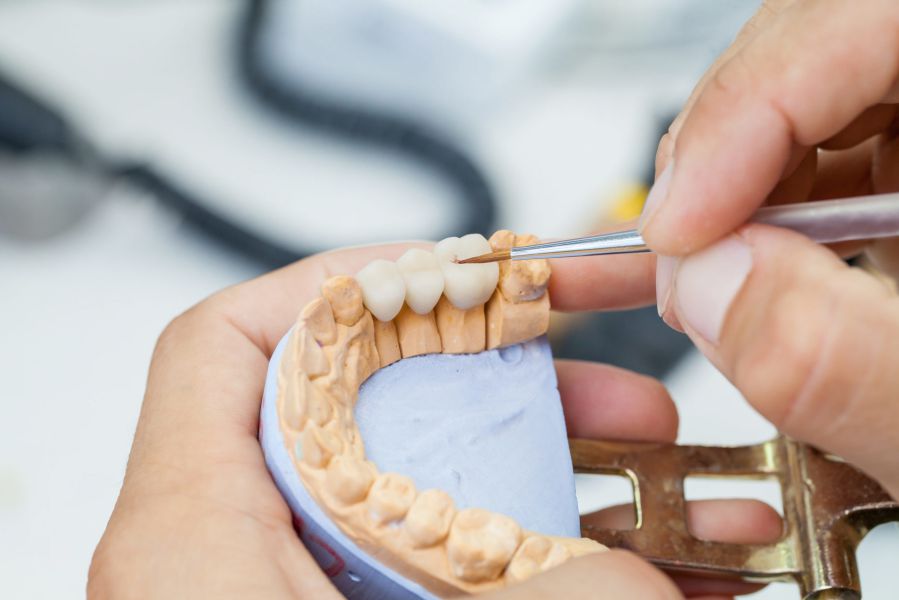
In any healthcare-related sector, including dentistry, individuals working within these areas must possess specific qualities and skills. For a dental technician at Vietnam Dental Lab, who is tasked with crafting dental prosthetics and orthodontic appliances, it is imperative that they execute their work with great care and perfection down to the finest details. To achieve this level of craftsmanship, certain skills are essential for success in this profession.
Essential Skills Required for Dental Technicians.
Each patient presents unique dental issues that require a specialized laboratory design to effectively address their specific conditions. Consequently, during the fabrication process, even the slightest deviation from the intended design or any misalignment with the occlusal model can render the dental restoration unusable. This highlights the critical importance of precision in dental work.
As a result, dental technicians must possess a comprehensive understanding of the patient’s oral structure and anatomy. They are required to be exceptionally meticulous when crafting and refining the components necessary for treatment. Attention to detail is paramount, as it directly impacts the success of the dental restoration.
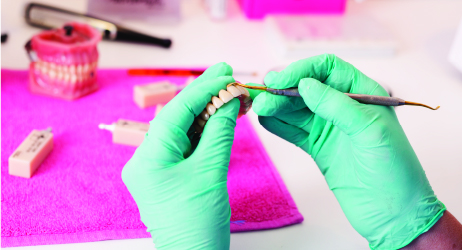
In addition to technical skills, dental technicians must also have an eye for aesthetics. They need to select materials that closely match the natural color of each patient’s teeth. Factors such as translucency, opacity, and the techniques used to apply color must be carefully considered and executed with precision to achieve a natural-looking result. This combination of technical expertise and artistic sensibility is essential for creating effective and visually appealing dental restorations.
In addition to the need for precision and meticulousness, it is essential to maintain a high level of concentration when selecting materials and colors for dental prosthetics. This aspect is crucial because the choice of materials and shades directly impacts the final aesthetic and functional quality of the dental work.
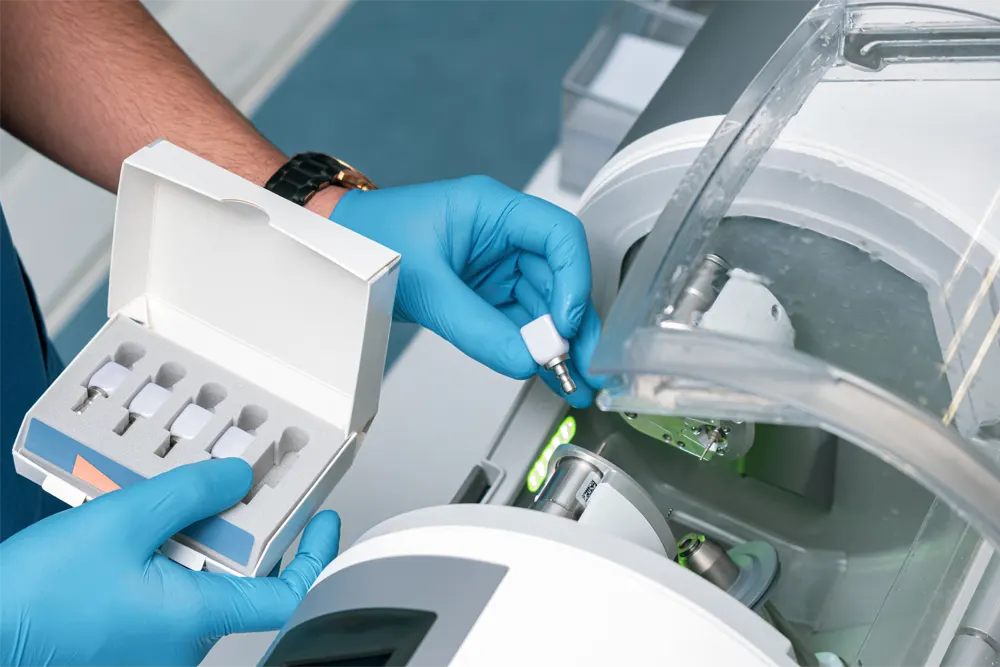
Every detail involved in the creation of dental restorations, such as crowns, bridges, and dentures, is crafted using advanced cutting and milling machines. However, if the design phase of the prosthetic does not accurately reflect the bite model, or if the manufacturing process is not optimized, it can lead to discrepancies that affect the overall outcome.
The staff at Vietnam Dental Lab exemplifies this dedication to focus and precision in their work, ensuring that every piece they create meets the highest standards of quality and accuracy. Their commitment to excellence is evident in the careful attention they give to each project, recognizing that even the smallest oversight can have significant implications for the final product.
- It is essential to actively listen to and absorb the insights and opinions offered by experienced dental technicians, dentists, and leading experts in the field. Their wealth of knowledge can provide invaluable guidance that enhances your understanding and skills in dental restoration techniques.
- Additionally, being open to constructive feedback and sharing experiences with friends and colleagues can significantly contribute to improving the quality of your own work. Engaging in discussions with peers allows you to gain different perspectives that can lead to innovative solutions and better outcomes in your projects.
- Effective communication, along with a strong sense of teamwork and collaboration, will enable your group to produce results more efficiently and with higher quality. When team members work well together, it fosters an environment where exchanging ideas with doctors becomes smoother and quicker, ultimately benefiting the overall workflow and project success.
Dental technicians play a crucial role in the field of restorative dentistry, and one of their essential skills is effective time management. They must be adept at organizing their tasks to ensure that they can complete dental products within the designated deadlines. This timely completion is vital because it allows the dentists to proceed with their treatment plans for patients as scheduled. If any adjustments or modifications are necessary, having the restorations ready on time enables the dentist to make those changes promptly, ensuring that patient care remains uninterrupted and efficient. Therefore, mastering time management not only enhances the workflow but also contributes significantly to the overall success of dental treatments and patient satisfaction.
The field of dental prosthetics is far from simple. Crafting a flawless product requires more than just a short-term effort; it demands a significant commitment over an extended period. This profession necessitates that technicians demonstrate perseverance in their learning journey, actively absorbing knowledge and experiences from department heads and leading experts in the industry.
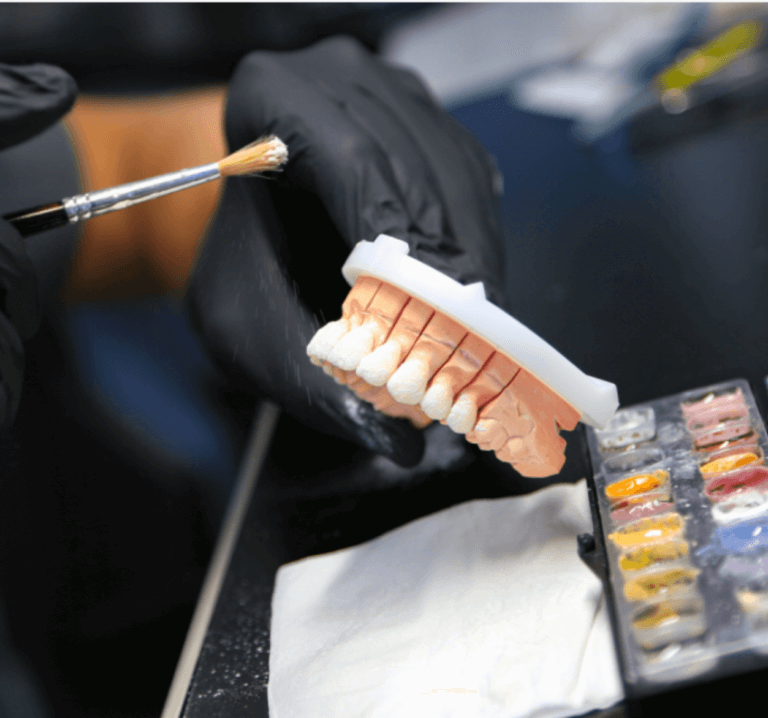
In essence, the art of dental restoration involves not only technical skills but also a deep understanding of various principles and practices. Technicians must be dedicated to continuous improvement, honing their craft through both formal education and hands-on experience. They need to cultivate patience and meticulousness, as these qualities are essential when working on intricate dental restorations.
Moreover, the process of creating dental prosthetics often involves collaboration with other professionals, which further enriches the technician’s expertise. By engaging with seasoned practitioners, they can gain insights into advanced techniques and innovative materials that enhance the quality of their work. Ultimately, the journey to mastering dental prosthetics is a long and rewarding one, characterized by a steadfast commitment to excellence and a passion for helping patients achieve their best smiles.
The process of exchanging and returning items for repairs is an inevitable aspect of the job, and it often comes with a fair share of complaints from doctors. This reality highlights the importance of maintaining a positive and cheerful attitude as a technician. It is essential for technicians to cultivate an optimistic mindset, which can significantly influence their interactions with clients. Additionally, they must develop the ability to manage their emotions effectively, ensuring that they remain calm and composed when receiving feedback or criticism. This approach allows them to adapt and make necessary changes in order to better meet the needs and expectations of the customers.
In summary, the nature of this work requires not only technical skills but also strong emotional intelligence and resilience. By fostering these qualities, technicians can enhance their performance and improve customer satisfaction, ultimately leading to a more harmonious working environment.
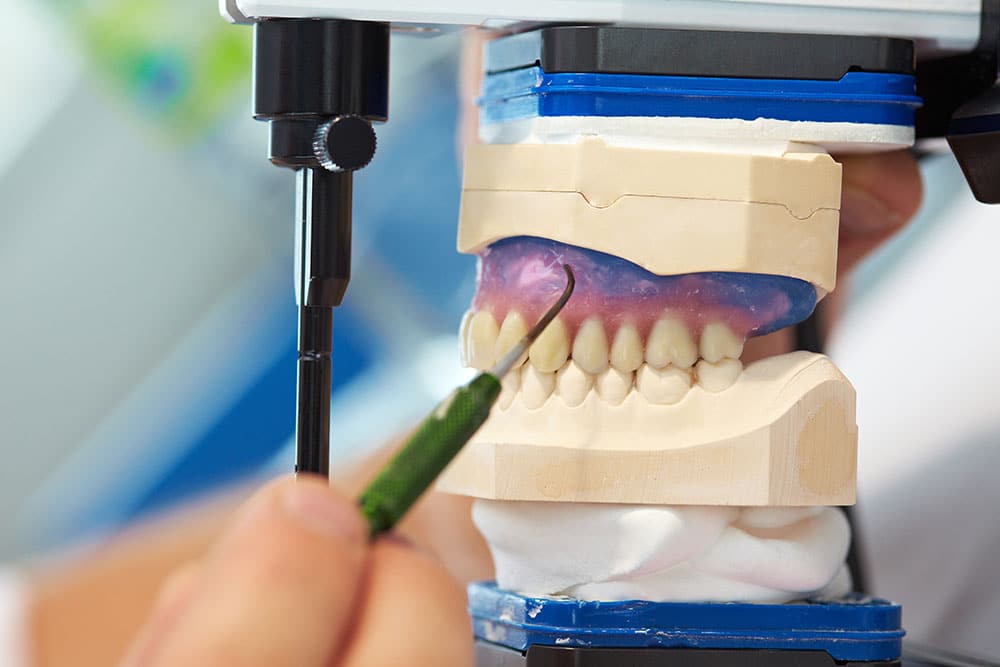
In addition to being meticulous with every detail, technicians should also cultivate the habit of observing skilled professionals who possess a high level of expertise and extensive experience. By learning from these seasoned technicians, they can gain valuable insights that will enhance their own work and improve the quality of their products.
Moreover, having a keen sense of judgment is crucial for making accurate assessments during each stage of the manufacturing and fabrication processes. This ability to make precise decisions ensures that every component is crafted to meet the highest standards of perfection, ultimately leading to a superior final product.
Due to the nature of the job, which involves sitting in one place for extended periods, it is essential for technicians to maintain a good level of health. The work requires them to rotate shifts effectively to ensure that deliveries to clinics are made on time. This means that technicians must be proactive in taking care of their physical well-being. If they fail to do so, it may become challenging to sustain their performance and longevity in this particular work environment.
The job inherently requires individuals to remain seated for long durations, which can take a toll on their overall health if not managed properly. As part of their responsibilities, technicians need to adapt to shift rotations that help meet deadlines for delivering products to various clinics punctually. Consequently, it is crucial for these professionals to prioritize their health and fitness. Without adequate attention to their physical condition, it could prove difficult for them to thrive and continue working effectively in such a demanding setting over time.
